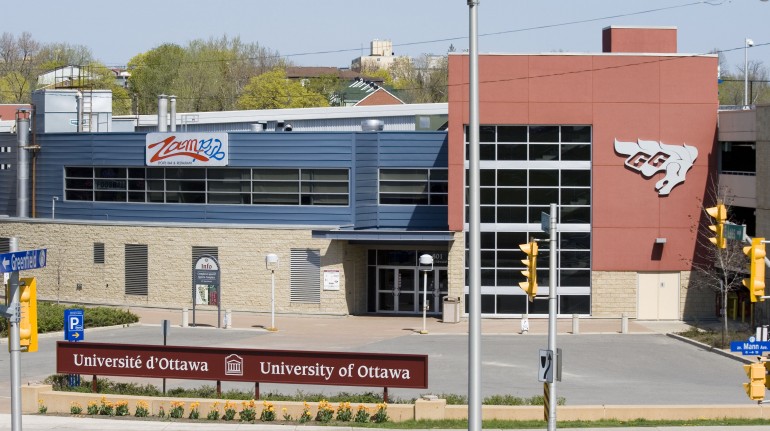by Donna Marie Sevilla
The University of Ottawa said they will follow the recommendations made by a task force to reduce sexual harassment after the accusations and suspensions involving the men’s varsity hockey team in 2014.
In March 2014, the varsity team was suspended because of “serious misconduct”, following the alleged assault of a female student at another university while the team was in Thunder Bay for a game.
The task force is made up of University of Ottawa faculty, students, and community members, to conduct research and release reports on findings of students who have been experiencing sexual harassment either face-to-face or online.
Recommendations made by the task force
- Create an action team.
- Demonstrate leadership commitment.
- Adopt an explicit statement of values.
- Implement a new sexual violence policy and protocol
- Deliver prevention and response training.
- Implement a campus-wide program.
- Collaborate with community partners.
- Clarify and publicize the role of the Human Rights Office
- Collect and make public relevant data
- Mandate a gender audit of Sports Services and training for student athletes and full-time coaching staff
- Fund education initiatives
They use the definition of sexual violence from the Government of Canada’s 2011 Changing Attitudes, Changing Lives: Ontario’s Sexual Violence Action Plan as the basis of their understanding for the recommendations:
“Sexual violence is… any violence, physical or psychological, carried out through sexual means or by targeting sexuality. This violence takes different forms including sexual abuse, sexual assault, rape, incest, childhood sexual abuse and rape during armed conflict. It also includes sexual harassment, stalking, indecent or sexualized exposure, degrading sexual imagery, voyeurism, cyber harassment, trafficking and sexual exploitation.”
The action team will be implementing the recommendations and reporting to the university president Allan Rock. The team members will be nominated by different organizations and in specific positions to demonstrate leadership. The action team will also run on a set of values known as Destination 2020, the university’s vision for creating a positive reputation within the community.
One of the main emphases is implementing a sexual violence policy, which also ties in with a recommendation to work with community partners to continue promoting the action against sexual harassment.
According to the report, statistics show that women reported sexual harassment more than men, ranging from sexually suggestive jokes that made them uncomfortable, to unwanted touches, to exposed genitalia.
University of Ottawa task force: The percentage of women who were sexually harassed face-to-face. | Create infographics
The reaction from women was mixed, as heterosexual women were pressured for dates more than those who identify as bisexual.
After conducting a survey with these men and women, 37 per cent of sexual harassment towards women was found to happen off-campus and in-class harassment was the least common at seven per cent. There was a similar trend with men, resulting in 19 per cent saying they were sexually harassed off-campus, while three per cent were sexually harassed in class.
University of Ottawa task force | These are some of the statistics provided in the report in relation to online sexual harassment.
The action team will also audit sports teams, and provide training for staff and players to be more aware of sexual harassment. Sports services are recommended to give priority to women when hiring for positions such as coordination, programming, facilities and coaching.
Community group findings
The report also lists numerous ways of how postsecondary institutes should use to combat sexual violence.
- Campuses must meaningfully engage with their community partners
- Campuses must provide sustained funding for anti-sexual violence programming
- Campuses must prevent sexual violence and not simply react to it
- Campus initiatives to address sexual violence must include senior administration
- Campuses must name the problem
Universities will work within their departments to establish communication and talk about rape culture. From there, administration are asked to make it a conversation and demonstrate authority to cut back on the occurrences of sexual violence.
The task force emphasizes gender equality and more counseling services to victims of sexual violence, since some are unable to approach police or family because they do not want them to know about the events.


